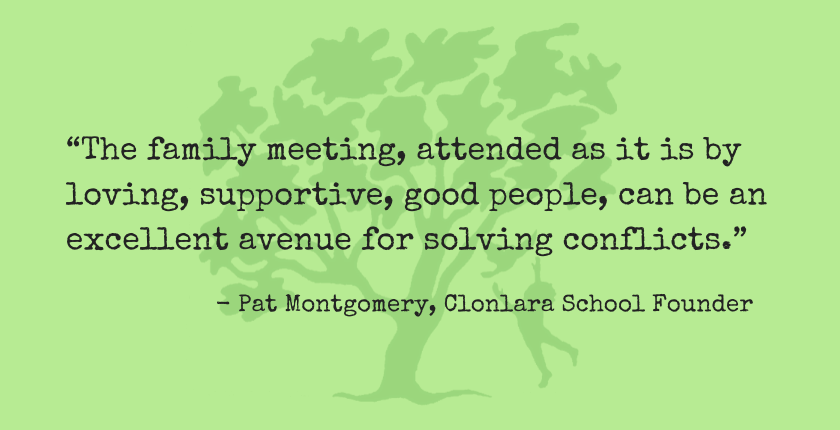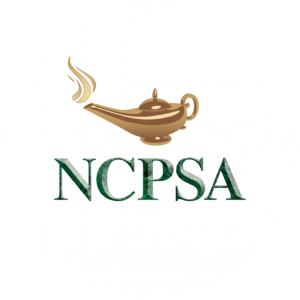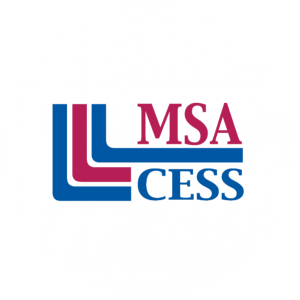By Pat Montgomery, Founder
Editor’s Note: From time to time, we’ll “look back” through our archives to share articles that are as relevant today as when they were printed. In this piece that was originally published in the August 2002 issue of The Learning Edge, Clonlara’s founder offers practical advice for resolving issues in a collaborative and supportive manner.
Life brings conflict. That is a given. We are imperfect beings; we make mistakes. There is an easy, three-step process that families can follow, often with positive results:
- Tell the person causing the problem; talk it over; explain your grievance with them.
- If the problem reoccurs, get a mutual friend who can help work it through with both parties.
- If the problem persists, bring the whole matter up in a meeting with a variety of people (family members and/or fellow students). In this setting, the parties having the problem feel supported by the group, not alienated and abandoned.
Many students report that they have had such meetings with their families at home. Over the years, I have met a number of families that praise the effectiveness of these get-togethers—for both problem-solving and planning activities.
The most salient message in this whole process is that a person has the power to make changes. They don’t have to grin and bear it. The author, James Baldwin, touches on this issue in one of his books. He said, “Not everything that is faced can be changed, but nothing can be changed until it is faced.” The gist of his message is that not every problem that is addressed will be solved, but no problem will be solved unless it is addressed.
I heartily recommend using this approach to each and all. Go work it out. Don’t let the sun go down on your anger. The family meeting, attended as it is by loving, supportive, good people, can be an excellent avenue for solving conflicts. It certainly saves on the energy and vitriol that it takes to walk away made or to gossip and badmouth the offending person. It helps us—young and old—to know that we are victims only if we choose to be.
Handling conflict, when it happens, is the most effective way to resolve issues and move on. The lessons that children can learn from this process are many and valuable, including
- A person has dignity and does not have to tolerate abusive behavior from others.
- A person has within them the power to make the changes necessary to live harmoniously with others.
- A person need not tolerate the problem overlong; it is best to “nip it in the bud” by addressing it quickly and directly.
- A person can become skilled in negotiating and problem solving—very helpful skills to have for life.
- Listening and forgiving and building anew are the core elements of living humanely.







